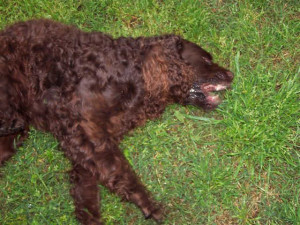
Seizures in older dogs are quite common, and yet most pet owners don’t know the reasons behind it. Don’t make the mistake of assuming that your dog is epileptic—seizures aren’t necessarily connected to epilepsy. In fact, the seizures may be indicative of another health condition.
Brain tumor is one common reason. As these tumors grow, the cause pain and pressure on the brain, which triggers the seizures. Aside from seizures, it is accompanied by a number of other symptoms, including loss of motor coordination and vision. To diagnose brain tumor, take your pet to the vet, who will most likely recommend a CAT (computed axial topography) or MRI (magnetic resonance imaging).
It might also be a symptom of kidney disease. When toxins build up or when the acidity levels are high, your dog might experience seizures in the long run. Diabetes is also a cause—not because of lack of treatment (which will result in coma or stupor), but because of over-treatment. Insulin overdose can lead to seizures in older dogs.
Not a lot of people are familiar with Cushing’s Disease, but it also causes seizures.
Identifying the causes of seizures in older dogs
While Cushing’s Disease (also known as hyperadrenocorticism) is not typically a direct cause of seizures, some of the circumstances surrounding the condition can lead to seizures. In most cases, Cushing’s Disease is caused by a lesion in the pituitary gland at the base of the brain. The majority of these tumors are microscopic in size, however there are cases where larger tumors (known as macroadenoma) can sometimes get big enough to put pressure on the brain and cause seizures. (More Here)
There are two types of seizures: a single convulsion, or a continuous one characterized by multiple convulsions. The second one is more dangerous and will require immediate attention. When your dog suffers from seizure, the first thing you need to do is to make sure that your dog doesn’t hurt himself. Don’t place your hand on the dog, as you might end up getting bitten. Instead, put a towel over it and gently restrain it. Once this happens, and the convulsions subside, take your old friend to the vet at once.
Leave a Reply